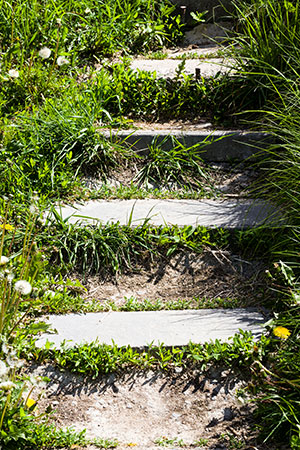 What follower of the Buddha hasn’t longed for “sudden enlightenment?” Who hasn’t wished to be awakened by an all-illuminating flash of wisdom, to see all defilements fall away and experience complete cessation of suffering?
What follower of the Buddha hasn’t longed for “sudden enlightenment?” Who hasn’t wished to be awakened by an all-illuminating flash of wisdom, to see all defilements fall away and experience complete cessation of suffering?
Many of the Buddha’s discourses are directed at monastics, who renounce conventional life and totally devote themselves to mental training. Such commitment is admirable, but very difficult to make for persons with responsibilities as a householder: earning a livelihood, providing necessities of life for oneself and one’s dependents, and fulfilling the obligations of living in society.
We lay-followers of the Buddha may find this discouraging. But the Buddha knew well the challenges of the householder life and offered us an alternate path, a path of gradual awakening. This uses the stuff of daily life as a basis for practice, and also leads to the end of suffering. The path of gradual awakening rests on the pillars of Dana (Generosity), Sila (Ethical Conduct) and Bhavana (Mental Training). Working with these three expands our understanding of Dharma Practice beyond meditation-only, creating opportunities in our daily life to transform suffering into liberation.
It is said that the Buddha initiated lay followers to the dharma path by instructing them in the practice of generosity. Insight meditation teacher Gloria Ambrosia wrote that “One of the senior monks in the Ajahn Chah lineage said that the Buddha talked about dana first, because if someone didn’t understand the value of basic generosity they weren’t even teachable. If we don’t have a sense of its significance, and don’t have some degree of maturity in our experience of it, then other forms of practice won’t even get off the ground. There has to be a malleability of heart, a softness, a diminished self-absorption, before the engines can even get started! And this softness is developed largely through our increasingly mature direct experience of dana.”
The Buddha’s teaching of lay followers also focused on the path factors of Right Speech, Right Action and Right Livelihood. The mind’s stability is greatly affected by our behavior “off the cushion.” It is common for memory of past acts of unethical behavior to arise in the mind and disrupt deep states of meditation. Cultivating morality protects one from such mental agitation.
Most discussions around “dharma practice” center on the frequency and quality of our meditation practice. We may value times of retreat as a way of deepening our meditation practice. We may lament the fact that so much time and energy are taken up with the responsibilities of job, family, and social connections – not to mention keeping the body fed, clothed, sheltered and healthy. We feel these consume the personal resources we’d prefer to devote to practice.
If we limit our understanding of our practice to formal meditation, we miss countless opportunities during the day to embody the path in our thoughts, words and deeds. From the time we awake to when we fall asleep, each act of generosity helps weaken our habits of attachment. Daily renewal of commitment to the ethical code of the Five Precepts helps eliminate shame, remorse and regret from the mind, and supports the stability and calm necessary for insight.
Nor is the practice of mindfulness limited to formal meditation. All of life can be the object of our mindfulness. In each moment we can recognize and release conditions that lead to suffering. The Buddha taught that before, during and after each action – mental, verbal and physical – we can ask ourselves, “Is this action a wholesome action, rooted in a wholesome mental state, leading to pleasant consequences for myself and others? Or is this action an unwholesome action, rooted in an unwholesome mental state, leading to painful consequences for myself or another?”
Of course, taking time for retreat practice is also a skillful means for transforming the mind from suffering to liberation. Retreats provide an ideal environment for cultivating Samadhi – the factors of the Noble Eight-fold Path concerned with mental training. Retreats let us set aside our householder responsibilities for awhile, to devote all our energy to training the mind in right effort, right mindfulness, and right concentration. Setting aside time for intensive meditation can re-energize our commitment to living the path of liberation.
Bridget Rolens teaches mindfulness meditation as a spiritual practice and as a tool for stress reduction. She is recognized by the Spirit Rock Teachers Council as a Community Dharma Leader. She is scheduled to lead a weekend retreat April 30- May 2, 2021.